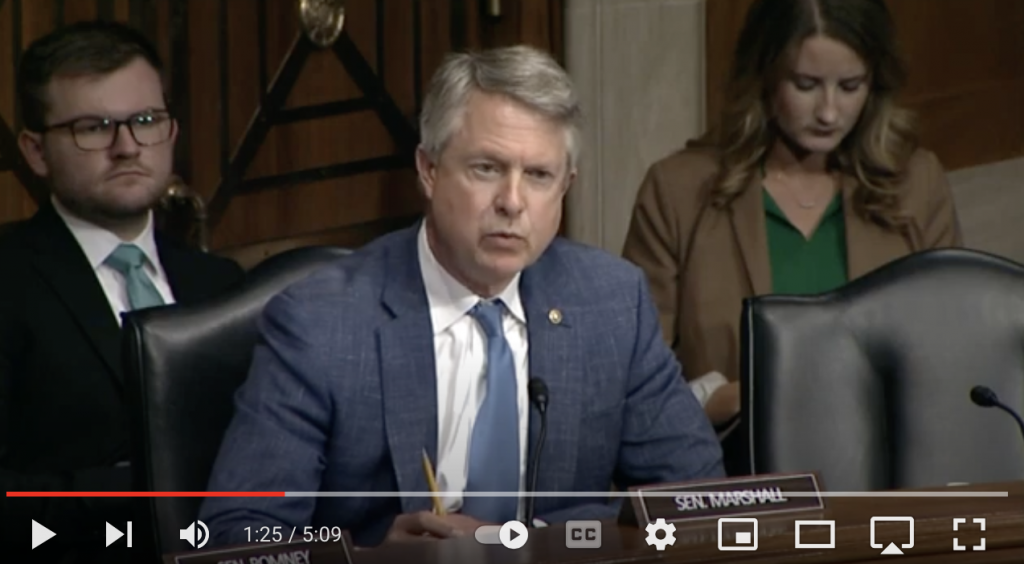- May 4, 2023
Witnesses Unable To Answer Senator Marshall’s Questions about Covid-19 Mental Health Impacts and Origins.
(Washington, D.C.) – U.S. Senator Roger Marshall, M.D. had a fiery exchange in the Health Education Labor and Pensions Committee hearing. In his questioning, Marshall asked Dr. Rochelle Walensky, Director at Centers for Disease Control and Prevention, about the extensive Covid lockdowns’ impact on mental health. Senator Marshall also pressed Dawn O’Connell, Assistant Secretary for Preparedness and Response, Administration for Strategic Preparedness and Response (ASPER) about the importance of getting to the bottom of the Covid-19 Origins.

Click HERE or on the image above to watch Senator Marshall’s full questioning.
Highlights from his questioning include:
On the mental health crisis that erupted from Covid-19:
Senator Marshall: “Dr. Walensky, retrospectively, what do you feel is the impact of lockdowns on mental health in this country?”
Dr. Walensky, : “Certainly, it’s… lives saved from Covid-19, and also challenges and connectivity, there are reports of some children doing better in school at home but there are some children that are -”
Senator Marshall: “My question is mental health.”
Dr. Walensky: “Right, and the lack of connectivity and challenges in mental health. And we saw increases in mental health challenges before the pandemic they were rising before the pandemic, and certainly the pandemic -”
Senator Marshall: “So you’re saying the lockdowns had no impact on mental health?”
Dr. Walensky: “No, I’m sorry, I’m not saying that. What I’m saying is that the impact is, when you lose 1.1 million people in this country, there’s tragedy, there’s loss, there’s loss of lives, loss of housing security, food security, all of these things impact health.”
On the virus being made in a laboratory in Wuhan:
Senator Marshall: Ms. O’Connell, recently we released a 300 page report on the origins of Covid-19. Senator Burr ran that investigation, and I want to give credit to Dr. Bob Kadlec and his great efforts as well. That report says that there’s a preponderance of evidence that shows that this virus was accidentally released from a lab in Wuhan, and a significant amount of evidence that would suggest that it was actually made in that laboratory in Wuhan. What are you doing to research that same issue? Do you feel it’s important we know the origins of Covid-19?
Ms. O’Connell: “This has not been in the preview of the work that I’ve done at this point. But I’d be happy to take this back to the department and other colleagues that are taking a look at that.”
Senator Marshall: Do you feel like it’s important that we know where this virus came from?”
Ms. O’Connell: I think it would be useful to know for sure, and I know that work is underway. It’s not being done in ASPER.
Senator Marshall: How would it be useful?
Ms. O’Connell: Well, as we work to prepare for whatever comes next, which is my job, it would be important to understand what I’m coming up against. But let me be clear, whatever it is, I’m responsible for responding to it wherever it came from.
Senator Marshall: So if the virus was made in a laboratory your response might be different than if it came from nature?
Ms. O’Connell: Well, I think it would help us prevent it from happening again if we knew the source. Regardless of that, my responsibility to the country is to help them respond to whatever comes next.
